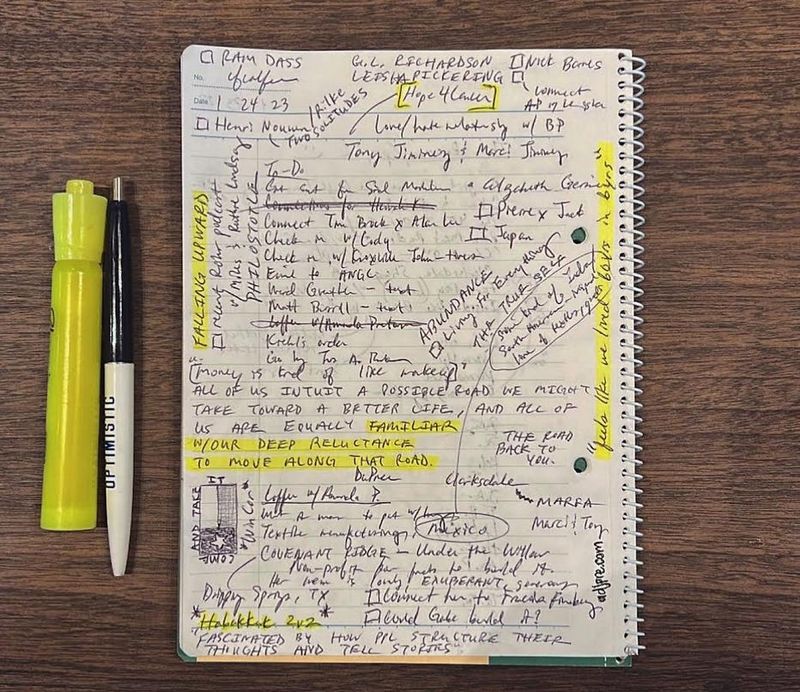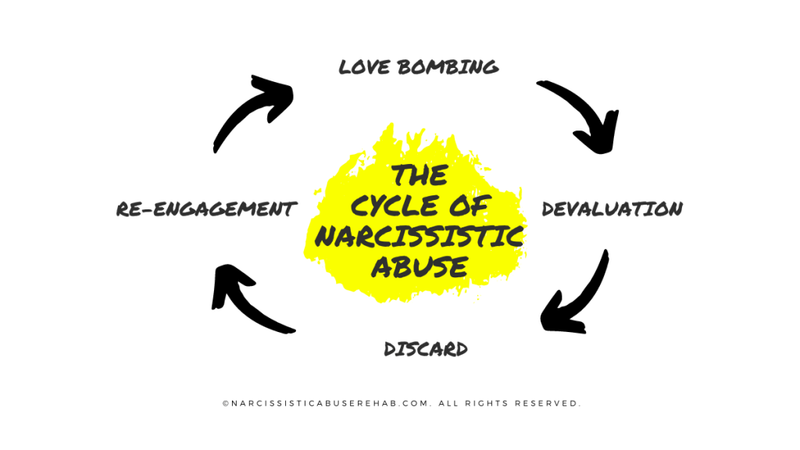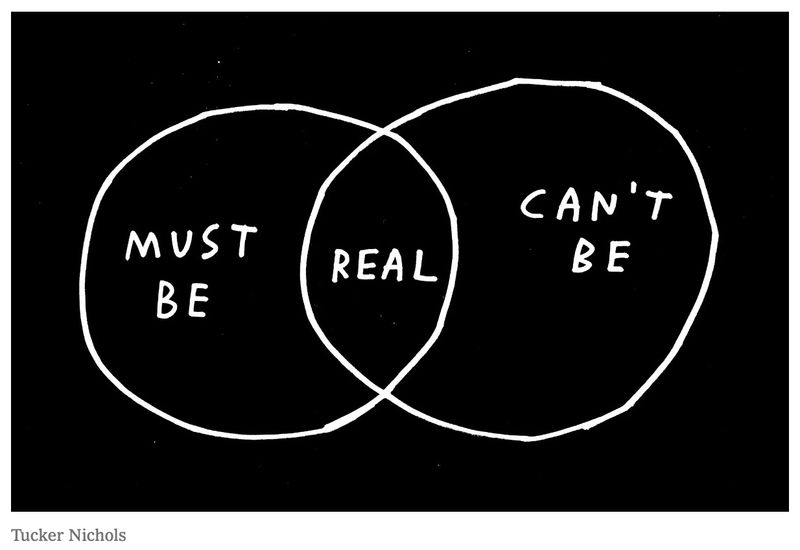17 Of The Best Defenses Against Gaslighting Sociopaths
In a world where gaslighting sociopaths can destabilize your sense of reality, fortifying your emotional defenses becomes paramount.
This guide offers 17 empowering strategies to protect your peace and maintain your sanity. From trusting your instincts to establishing unyielding boundaries, these approaches are designed to keep you grounded and self-assured, even in the face of manipulation.
Embrace these tools to not only survive but thrive, safeguarding your emotional well-being and reclaiming your power.
1. Document conversations when possible—memory gets manipulated

When confronted by gaslighting tactics, documentation becomes a powerful ally. Keep a journal or digital record of conversations and incidents, capturing details as they unfold. This written evidence serves not only as a memory aid but as a firm anchor to truth amidst manipulation.
By externalizing events on paper, you create a factual narrative immune to distortion. This practice can reveal patterns, empowering you to identify and respond to gaslighting attempts with clarity.
In moments when reality feels warped, these records provide a comforting reminder of what truly transpired. Not only does this bolster your confidence, but it also equips you with tangible proof if disputes arise. Prioritize this habit to safeguard your mental landscape.
2. Trust your gut feelings—even when they seem “illogical”

Your intuition is a powerful guide, especially when logic seems to falter. That subtle nudge, often dismissed as illogical, can be the beacon steering you through manipulation. Trust it.
Gaslighting thrives on doubt, but your gut feelings provide a counterbalance. They are rooted in subconscious cues and past experiences, offering insights that rational thought might overlook. Embrace this inner voice.
Cultivating trust in your instincts fortifies your emotional armor. In scenarios where words and actions don’t align, this internal compass can clarify truth from fiction. Let intuition be your ally, defending against the disorienting effects of gaslighting.
3. Don’t argue with someone committed to misunderstanding you

Engaging in a debate with someone intent on distorting your perspective is often futile. Recognize when a conversation turns into a battlefield of misunderstanding and choose to disengage.
Gaslighting sociopaths thrive on creating chaos and confusion. They twist words and intentions, leaving you exhausted and questioning your reality. By refusing to argue, you deny them the power to manipulate further.
Instead, conserve your energy for nurturing relationships that foster understanding and respect. Walking away from an argument doesn’t signify defeat; it demonstrates wisdom and self-preservation, safeguarding your peace of mind.
4. Validate your own emotions before asking for external support

Before seeking validation from others, take a moment to affirm your own feelings. Recognize and accept your emotions as they are, without external influence.
Gaslighting often leaves you questioning your own emotional responses. By acknowledging your feelings first, you build a foundation of self-trust, reducing reliance on others for validation.
This self-validation process empowers you to navigate relationships from a place of strength and authenticity. Once you’ve established this internal acknowledgment, reaching out for support becomes a choice, not a necessity, further shielding you from manipulation.
5. Keep your boundaries simple—and firm

Establishing boundaries is crucial in the defense against gaslighting. Keep these boundaries clear and uncomplicated, ensuring they are both understandable and enforceable.
When faced with manipulation, a firm boundary acts as a protective barrier, maintaining your personal integrity and emotional health. It’s vital to communicate these limits unequivocally, leaving no room for distortion or misinterpretation.
Consistently upholding your boundaries demonstrates self-respect and fortitude, deterring further attempts at gaslighting. By simplifying your boundaries, you make them easier to defend, reinforcing your stance against emotional infiltration.
6. Recognize the pattern: charm, confusion, chaos

Gaslighting often follows a distinct pattern: initial charm, subsequent confusion, and eventual chaos. Recognizing this sequence can alert you to manipulative tactics before they take hold.
Charming behaviors lure you into a false sense of security, making the subsequent confusion more disorienting. As chaos ensues, your perception of reality is challenged, creating vulnerability.
By identifying this cycle early, you can brace yourself against its impact. Awareness empowers you to counteract manipulation with informed responses, preserving your mental clarity amidst potential turmoil.
7. Refuse to explain yourself endlessly

Constantly explaining your actions or beliefs can become an endless cycle of frustration in the face of manipulation. Embrace the power of leaving explanations succinct and firm.
Gaslighting thrives on making you second-guess your motives, but refusing to indulge in excessive justification reclaims your narrative. It asserts your right to autonomy and self-acceptance.
By setting this boundary, you communicate respect for your own decisions, reducing the influence of external doubt. This approach not only protects your mental energy but also fortifies your self-esteem against manipulation tactics.
8. Separate their reality from your own observations

Distinguishing between what is presented as reality and your own observations is crucial in resisting manipulation. By separating these perspectives, you maintain clarity and objectivity.
Gaslighters often blur the lines, making it difficult to discern truth from deception. Observing situations through your own lens, rather than accepting imposed narratives, empowers you to identify inconsistencies.
This practice strengthens your ability to trust your perceptions, fostering resilience against the skewed realities of others. It’s a defensive strategy that reinforces your confidence in the authenticity of your experiences.
9. Limit emotional exposure after manipulation attempts

After encountering manipulation, it’s vital to create emotional distance to regain balance. Retreat to a tranquil space, whether physical or mental, to process emotions and restore equilibrium.
Gaslighting can leave emotional scars, but limiting exposure to further attempts aids in healing. Cultivate a sanctuary where you can reflect without external interference.
This practice prioritizes your emotional well-being, allowing you to recover from the disorientation caused by manipulation. It’s a nurturing act of self-care, reinforcing your resilience and safeguarding your peace.
10. Have witnesses for important conversations when possible

Bring witnesses into critical discussions to ensure a balanced narrative. Their presence can curb a gaslighter’s attempts to distort facts, providing a layer of accountability.
Gaslighting thrives in isolation, where narratives go unchecked. By including others, you introduce impartial eyes and ears, deterring manipulation through transparency.
Witnesses help anchor conversations in reality, reducing the gaslighter’s control over the dialogue. This strategy promotes honesty and integrity, reinforcing your defenses against emotional manipulation.
11. Stay grounded in facts, not feelings they try to create

Focusing on facts instead of the emotions gaslighters attempt to evoke can prevent manipulation. Facts are concrete and verifiable, while emotions can be easily swayed.
Gaslighters aim to destabilize by creating emotional upheaval. By adhering to data and evidence, you maintain a foundation of truth that is difficult to undermine.
This approach empowers you to navigate conflicts with logic and reason, reducing the impact of emotional manipulation. It’s a strategic defense that preserves your mental clarity and fortitude.
12. Take time before responding—urgency is a trap

In the face of gaslighting, haste can lead to missteps. Resist the impulse to respond immediately to provocations or accusations. Instead, embrace patience.
Urgency is often a tactic used to cloud judgment. By taking time to reflect, you allow emotions to settle, enabling more thoughtful and measured reactions.
This pause not only protects you from impulsive decisions but also reinforces your control over the situation. It’s a mindful strategy that enhances your resilience against manipulation, fostering a calm and collected demeanor.
13. Resist the pull to defend your character at every turn

Defending your character repeatedly can be exhausting and counterproductive in the face of gaslighting tactics. Embrace the strength of knowing your self-worth without external validation.
Gaslighters often provoke defensiveness to destabilize your confidence. By resisting this pull, you maintain authority over your self-image, reducing their ability to manipulate.
Acknowledging your intrinsic value fortifies your emotional resilience. It’s an empowering stance that shields you from attempts to weaken your sense of identity, fostering a robust self-esteem amidst manipulation.
14. Build a support network that reflects you clearly

Surround yourself with individuals who genuinely understand and support you, cultivating a protective barrier against manipulation. This supportive network acts as a mirror, reflecting your true self.
Gaslighting isolates, but a strong community provides reassurance and perspective, validating your experiences. Trustworthy friends and allies offer a sounding board, enhancing your resilience.
These connections reinforce your identity and values, safeguarding you from external distortions. Building such a network is an empowering step towards emotional security, fortifying your defenses against manipulation.
15. Don’t fall for future-faking promises

Future-faking is a common tactic used by manipulators, making promises of a better future to distract from present issues. Stay vigilant against these empty assurances.
Recognize the disparity between words and actions. Trust is built on consistent behavior, not unfulfilled promises. By focusing on the present reality, you can navigate away from deceptive pulls.
This awareness prevents entrapment in cycles of anticipation and disappointment. It’s a protective measure that keeps you grounded, fostering a clear-eyed view of relationships and intentions.
16. End conversations when they turn into word salads

When dialogue descends into convoluted, nonsensical wordplay, it’s often a tactic to confuse and dominate. Recognize this “word salad” and remove yourself from the conversation.
Such speech patterns are designed to destabilize your understanding, creating an environment of doubt. By choosing to disengage, you protect your mental clarity and energy.
This decisive action asserts your boundaries and prioritizes your peace. It’s a strategic withdrawal from unnecessary chaos, reinforcing your position against manipulative dialogue.
17. Remember: protecting your peace is not rude

Choosing to protect your peace is a vital act of self-care, not rudeness. Prioritize your emotional well-being over maintaining appearances or pleasing others.
Gaslighters may portray your need for peace as selfishness, but setting this boundary is crucial for mental health. Embrace the clarity and calm that comes with self-preservation.
This commitment to your peace builds resilience against manipulation, fostering a secure and harmonious internal environment. It’s an empowering decision that respects your boundaries and nurtures your spirit.







